DevOps tools that are essential for effective development. We've collected the most popular tools for you! Check out our blog post!
More...
Effective organizations rely on powerful tools to streamline processes, increase collaboration and achieve greater efficiency. DevOps tools play a vital role in automating, managing, and optimizing the software delivery lifecycle, enabling teams to easily build, test, deploy, and monitor applications. If you are not familiar with DevOps, please read our blog post on the DevOps role first.
We've compiled a table of a wide range of popular DevOps tools, each with unique strengths and use cases. From configuration management and container orchestration to version control and continuous integration, these tools serve different aspects of the DevOps workflow. Whether you're looking for a robust platform for collaboration, a robust framework for automation, or a tool for monitoring and observability, you'll find a wide range of options to meet your unique needs.
We present the main strengths and key features of each tool and summarise in a few sentences what each is best used for. Gain insight into how they empower developers, operations teams, and organizations in general. From industry giants such as Amazon ECS, Ansible, and Docker to established players such as Jenkins, Jira, and Kubernetes, the table presents a wealth of information to help you make informed decisions about the right DevOps tools for your projects.
Harness the power of these tools to unlock the true power of DevOps and drive innovation in your organization. Let this table be your guide on the path of DevOps.
Top DevOps Tools
DevOps Tool | Main area of use | Main strength | Brief Description & The Best Features of the Tool |
|---|---|---|---|
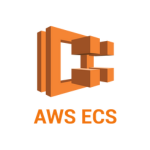 Amazon ECS | Container Orchestration | Scalability and Flexibility | Amazon Elastic Container Service (ECS) is a fully managed container orchestration service that allows you to run containers on Amazon Web Services (AWS). It provides a scalable and flexible platform for deploying, managing, and scaling containerized applications. Main features: 1. Automated container management and scaling. 2. Integration with other AWS services. 3. Support for Docker containers. 4. Load balancing and service discovery capabilities. 5. Built-in security features and integration with AWS Identity and Access Management (IAM). |
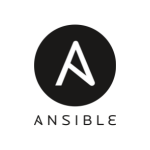 Ansible | Configuration Management | Simplicity and Agentless | Ansible is an open-source automation tool that focuses on simplicity and ease of use. It uses declarative language to define system configurations, and it operates in an agentless manner, which means it doesn't require any software to be installed on the managed systems. Main features: 1. Agentless architecture for easy deployment. 2. Simple and human-readable syntax. 3. Support for infrastructure as code. 4. Extensive library of pre-built modules. 5. Seamless integration with existing tools and systems. |
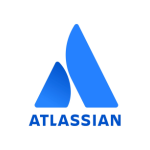 Atlassian Open DevOps | DevOps Collaboration | Integration and Collaboration | Atlassian Open DevOps is a suite of tools that includes Jira, BitBucket, and Bamboo, among others. It provides a comprehensive platform for collaboration, version control, and continuous integration and delivery (CI/CD). Main features: 1. Seamless integration between different tools in the suite. 2. Agile project management capabilities. 3. Robust version control and code review features. 4. Build and deployment automation. 5. Extensive marketplace for customizations and integrations. |
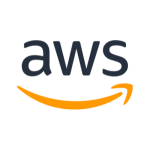 AWS DevOps | DevOps Automation | Integration with AWS Services | AWS DevOps is a set of services provided by Amazon Web Services (AWS) that aim to simplify and automate various aspects of the software development and delivery lifecycle. It offers a wide range of tools and services for building, testing, deploying, and monitoring applications on AWS. Main features: 1. Integration with other AWS services and resources. 2. Infrastructure provisioning and management capabilities. 3. Automated deployment and scaling of applications. 4. Continuous integration and delivery pipelines. 5. Monitoring and logging features for application performance and health. |
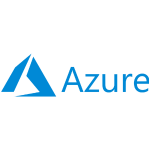 Azure DevOps | DevOps Collaboration and Automation | Comprehensive Integration | Azure DevOps, previously known as Visual Studio Team Services (VSTS), is a cloud-based platform by Microsoft that combines various tools and services for software development, collaboration, and delivery. It provides capabilities for version control, build and release management, and project tracking. Main features: 1. Seamless integration with Azure services and resources. 2. Support for multiple programming languages and frameworks. 3. Integrated CI/CD pipelines with customizable workflows. 4. Agile project management and tracking features. 5. Extensive reporting and analytics capabilities. |
 Bamboo | Continuous Integration and Deployment | Scalability and Extensibility | Bamboo is a continuous integration and deployment tool by Atlassian. It helps automate the build, test, and release processes of software applications. Bamboo supports various programming languages, frameworks, and deployment targets. Main features: 1. Easy integration with other Atlassian tools. 2. Scalable and distributed build agents. 3. Flexible build pipelines with customizable stages and tasks. 4. Integration with popular version control systems. 5. Extensibility through plugins and add-ons. |
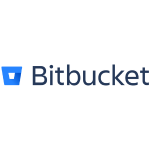 BitBucket | Version Control and Collaboration | Git and Mercurial Support | BitBucket is a web-based version control repository hosting service by Atlassian. It supports both Git and Mercurial version control systems, allowing teams to collaborate on code, track changes, and manage repositories effectively. Main features: 1. Git and Mercurial support for flexible version control. 2. Integrated code review and pull request workflows. 3. Granular access control and permission management. 4. Seamless integration with other Atlassian tools. 5. Built-in Jira integration for streamlined issue tracking and development workflow. |
 Chef | Configuration Management and Automation | Infrastructure as Code | Chef is an open-source configuration management tool that enables infrastructure automation through a domain-specific language (DSL) called Chef Infra. It allows users to define and manage the configuration of systems as code, promoting consistency and reproducibility. Main features: 1. Infrastructure automation with reusable code and templates. 2. Scalable and distributed architecture. 3. Platform-agnostic support for multiple operating systems. 4. Configuration drift detection and correction. 5. Integration with popular cloud platforms and virtualization technologies. |
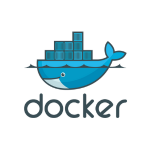 Docker | Containerization | Portability and Efficiency | Docker is an open-source platform that enables developers to build, package, and distribute applications as lightweight containers. It provides a standardized way to package applications and their dependencies, ensuring consistent and efficient deployment across different environments. One of the best containerization tools, which is why it is included in DevOps tools. Main features: 1. Lightweight and isolated containers for efficient resource utilization. 2. Portability across different operating systems and platforms. 3. Simplified application deployment and dependency management. 4. Versioning and rollback capabilities. 5. Extensive ecosystem of pre-built container images and tools. |
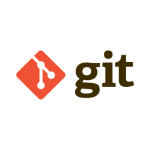 Git | Version Control | Distributed and Fast | Git is a distributed version control system (DVCS) widely used for tracking changes in source code during software development. It allows multiple developers to collaborate on a project, work offline, and easily merge code changes from different branches. Main features: 1. Distributed architecture for offline and parallel development. 2. Fast and efficient performance, even with large codebases. 3. Branching and merging capabilities for collaborative development. 4. Support for non-linear development workflows. 5. Integration with various IDEs and development tools. |
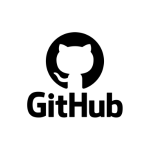 GitHub | Version Control and Collaboration | Social Coding and Community | GitHub is a web-based platform that provides hosting for Git repositories, along with collaboration and social coding features. It allows developers to share code, contribute to open-source projects, and manage the entire software development lifecycle. Main features: 1. Social coding features like issue tracking, pull requests, and code reviews. 2. Seamless collaboration with teams and open-source communities. 3. Continuous integration and deployment workflows. 4. Public and private repository hosting options. 5. Extensive ecosystem of integrations and extensions. |
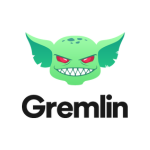 Gremlin | Chaos Engineering | Resilience Testing | Gremlin is a chaos engineering tool that helps organizations test the resilience of their systems by simulating real-world failures. It allows users to create controlled chaos experiments and observe how their applications and infrastructure respond to various failure scenarios. Main features: 1. Easy and intuitive experiment creation with a graphical interface. 2. Wide range of failure scenarios and attack types. 3. Real-time monitoring and observability during chaos experiments. 4. Integration with popular cloud providers and container orchestrators. 5. Detailed reports and analysis of system behavior and performance. |
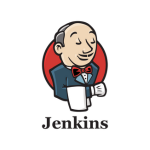 Jenkins | Continuous Integration and Delivery | Extensibility and Automation | Jenkins is an open-source automation server that facilitates continuous integration and delivery (CI/CD). It provides a framework for building, testing, and deploying software projects automatically. Jenkins supports a wide range of plugins and integrations, making it highly customizable and adaptable to different development environments. One of the best CI/CD tools, which is why it is included in DevOps tools. Main features: 1. Extensive plugin ecosystem for seamless integration with various tools and technologies. 2. Distributed architecture for scalable and parallel builds. 3. Flexible build pipelines with configurable stages and triggers. 4. Extensible through Groovy-based scripting and APIs. 5. Comprehensive reporting and monitoring capabilities for build and test results. |
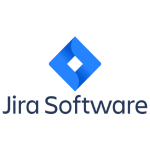 Jira | Issue Tracking and Project Management | Agile Methodologies | Jira is a project management tool by Atlassian that focuses on issue tracking and agile project management. It allows teams to plan, track, and release software efficiently, using methodologies like Scrum and Kanban. Main features: 1. Customizable issue tracking workflows and boards. 2. Agile project management features for sprint planning and backlog management. 3. Advanced reporting and analytics for tracking project progress. 4. Integration with development and collaboration tools. 5. Extensive marketplace for add-ons and integrations. |
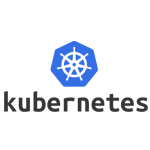 Kubernetes | Container Orchestration | Scalability and Portability | Kubernetes is an open-source container orchestration platform that automates the deployment, scaling, and management of containerized applications. It provides a robust and scalable framework for managing containers across different environments. Main features: 1. Automated deployment, scaling, and management of containerized applications. 2. High availability and fault tolerance through self-healing capabilities. 3. Declarative configuration for reproducible deployments. 4. Horizontal and vertical scaling options. 5. Extensive ecosystem of tools and extensions for Kubernetes management. |
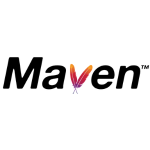 Maven | Build Automation, Dependency Management | Convention over Configuration | Maven is a build automation tool primarily used for Java projects. It simplifies the building process by providing a set of predefined conventions and dependencies management. Maven uses XML-based configuration files to define the project structure and dependencies. Main features: 1. Convention over configuration approach for standardizing project structure. 2. Centralized dependency management and repository. 3. Automated build and testing processes. 4. Modular and scalable architecture for large projects. 5. Support for continuous integration and delivery pipelines. |
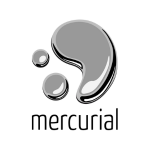 Mercurial | Version Control | Simplicity and Performance | Mercurial is a distributed version control system (DVCS) similar to Git. It offers an intuitive and user-friendly interface, making it easier for beginners to grasp compared to other VCS tools. Mercurial also boasts excellent performance and efficiency. Main features: 1. Easy-to-use interface with straightforward commands and workflows. 2. Excellent performance and scalability. 3. Built-in support for code branching and merging. 4. Cross-platform compatibility. 5. Integration with popular IDEs and development tools. |
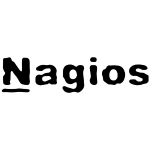 Nagios | Monitoring and Alerting | Extensibility and Customization | Nagios is an open-source monitoring and alerting system that helps organizations monitor their IT infrastructure, applications, and services. It offers a flexible and extensible framework for monitoring various components and generating alerts based on defined thresholds. Main features: 1. Customizable monitoring plugins for different types of systems and services. 2. Centralized monitoring dashboard with real-time updates. 3. Advanced alerting and notification mechanisms. 4. Trend analysis and capacity planning features. 5. Integration with ticketing and incident management systems. |
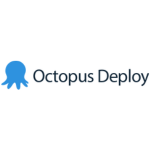 Octopus | Release Management | Deployment Automation | Octopus Deploy is a release management tool that automates the deployment process for applications across different environments. It provides a platform for managing and orchestrating complex release pipelines, ensuring consistent and error-free deployments. One of the best release management tools, which is why it is included in DevOps tools. Main features: 1. Simplified and visual deployment pipeline configuration. 2. Release and environment management with rollbacks and version control. 3. Support for multi-tenant and multi-environment deployments. 4. Compliance and security features for controlled releases. 5. Integration with popular CI/CD and configuration management tools. |
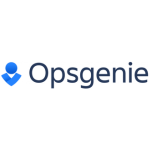 OpsGenie | Incident Response and Management | Alerting and Collaboration | OpsGenie is an incident response and management platform that helps organizations effectively respond to and resolve incidents. It provides alerting, on-call scheduling, and collaboration features to facilitate the incident resolution process. Main features: 1. Intelligent alerting and notification mechanisms. 2. On-call schedule management and escalation policies. 3. Collaboration and communication tools for incident response teams. 4. Real-time incident status updates and tracking. 5. Integration with monitoring and alerting systems. |
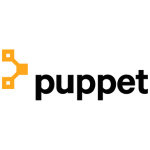 Puppet | Configuration Management, Automation | Infrastructure as Code | Puppet is an open-source configuration management tool that enables organizations to automate the provisioning, configuration, and management of their infrastructure. It uses a declarative language to define system configurations as code. Main features: 1. Infrastructure automation with declarative and reusable code. 2. Scalable and agent-based architecture. 3. Configuration drift detection and remediation. 4. Support for diverse operating systems and platforms. 5. Integration with popular cloud and virtualization technologies. |
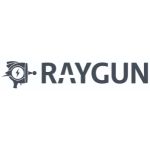 Raygun | Application Monitoring and Error Tracking | Real-time Error Detection | Raygun is an application monitoring and error tracking tool that helps developers identify and diagnose software errors and performance issues. It provides real-time error detection, detailed error reports, and performance insights to improve application quality and user experience. Main features: 1. Real-time error detection and reporting for swift issue resolution. 2. Automatic grouping and deduplication of errors. 3. Performance monitoring and insights for application optimization. 4. Integration with popular development frameworks and platforms. 5. Advanced error filtering and notification capabilities. |
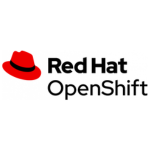 Red Hat OpenShift | Container Orchestration, Management | Enterprise-grade Platform | Red Hat OpenShift is a container platform that provides a scalable and secure environment for building, deploying, and managing containerized applications. It leverages Kubernetes for container orchestration and offers additional enterprise-grade features and support. Main features: 1. Kubernetes-based container orchestration with additional enterprise features. 2. Built-in security and compliance capabilities. 3. Integrated developer tools and workflows. 4. Hybrid and multi-cloud support for deployment flexibility. 5. Extensive marketplace for customizations and integrations. |
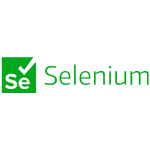 Selenium | Automated Testing | Cross-Browser Testing | Selenium is an open-source automated testing framework for web applications. It provides a suite of tools and libraries for testing web user interfaces across different browsers and platforms. Selenium supports various programming languages and integrates with popular testing frameworks. Check out our blog post about the advantages of using Selenium. Main features: 1. Cross-browser and cross-platform testing capabilities. 2. Powerful and flexible test scripting with multiple language bindings. 3. Integration with testing frameworks and continuous integration systems. 4. Support for parallel test execution. 5. Extensive community and ecosystem for support and extensions. |
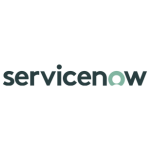 ServiceNow | IT Service Management, Automation | Comprehensive ITSM Platform | ServiceNow is a cloud-based IT service management (ITSM) platform that provides a range of tools and services for automating and managing IT processes. It offers capabilities for incident management, change management, asset management, and service catalog, among others. Main features: 1. Comprehensive IT service management capabilities. 2. Automation and orchestration of IT processes. 3. Incident and problem management with tracking and resolution workflows. 4. Integration with IT infrastructure andmonitoring tools for seamless data exchange. 5. Customizable workflows and service catalogs for tailored IT service delivery. |
 SignalFX | Monitoring and Observability | Real-time Metrics and Analytics | SignalFX is a cloud monitoring and observability platform that provides real-time metrics, analytics, and visualizations for applications and infrastructure. It collects and analyzes data from various sources to help organizations gain insights and make data-driven decisions. Main features: 1. Real-time monitoring and alerting for proactive issue detection. 2. Rich visualizations and dashboards for data analysis. 3. Advanced analytics and anomaly detection for performance optimization. 4. Support for diverse data sources and integrations. 5. Scalable and cloud-native architecture for handling large-scale data. |
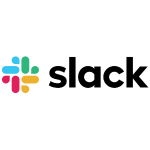 Slack | Collaboration, Communication | Team Collaboration and Integration | Slack is a cloud-based collaboration platform that enables teams to communicate and collaborate effectively. It provides channels for team discussions, direct messaging, file sharing, and integration with various tools and services, enhancing productivity and workflow efficiency. Main features: 1. Real-time communication and collaboration for distributed teams. 2. Searchable message history and file sharing. 3. Integration with a wide range of tools and services. 4. Customizable notifications and alerts. 5. Channel-based organization for team discussions and project-specific communication. |
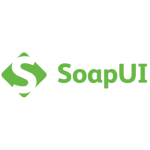 SoapUI | API Testing and Virtualization | Automation and Simulation | SoapUI is an open-source testing tool specifically designed for testing web services and APIs. It allows users to create, manage, and execute automated tests, as well as simulate web services for testing purposes. One of the best test tools, which is why it is included in DevOps tools. For more information, read about SoapUI in our blog post. Main features: 1. Comprehensive testing capabilities for SOAP and RESTful APIs. 2. Test automation and scripting with support for multiple languages. 3. Load testing and performance monitoring features. 4. Virtualization of web services for isolated and controlled testing. 5. Integration with other testing frameworks and tools. |
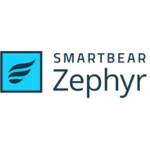 Zephyr | Test Management | Test Planning and Execution | Zephyr is a test management tool that helps teams plan, track, and execute software testing activities. It provides a centralized platform for managing test cases, test execution, and test reporting, streamlining the testing process and improving collaboration among team members. Main features: 1. Test case management with version control and traceability. 2. Test planning and scheduling for efficient resource allocation. 3. Test execution tracking and reporting. 4. Integration with popular testing frameworks and issue tracking tools. 5. Customizable dashboards and analytics for test insights. |
We hope you enjoyed the table above and can use these DevOps tools in your work effectively.
Please contact us if you need DevOps specialists! We'll be more than happy to help you find the right DevOps engineer (with the knowledge of the expected DevOps tools) and we'll make the candidate selection for you free of charge, with no recruitment success fee.
We can provide you with a selected senior DevOps professional from the start of the project to the end of the project at a pre-defined daily rate. Sounds good? Yes, and that's exactly how it works. Trust us, let Bluebird be your company's next partner. Request an offer NOW!
To be the first to know about our latest blog posts, follow us on LinkedIn and Facebook!
